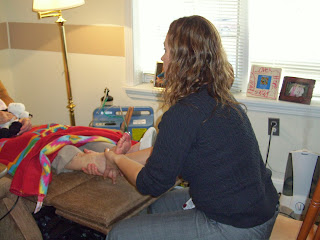 I really don't like heat. Growing up in the oven that is the Arizona desert, I discovered early on I prefer a cooler climate. Dad and Mom, on the other hand, were originally from Buffalo and couldn't ever be warm enough. They welcomed Arizona's heat. Inevitably, both my parents required additional care later in life and I found myself spending extended periods of time in my native climate. Some of those times were during the heat of summer - you guessed it - my least favorite season there. In fact, when it was time for Dad to move to an assisted living facility, I single-handedly packed up, cleaned up, cleared out, sold and moved everything from my childhood home in temperatures well over 110 degrees.
I really don't like heat. Growing up in the oven that is the Arizona desert, I discovered early on I prefer a cooler climate. Dad and Mom, on the other hand, were originally from Buffalo and couldn't ever be warm enough. They welcomed Arizona's heat. Inevitably, both my parents required additional care later in life and I found myself spending extended periods of time in my native climate. Some of those times were during the heat of summer - you guessed it - my least favorite season there. In fact, when it was time for Dad to move to an assisted living facility, I single-handedly packed up, cleaned up, cleared out, sold and moved everything from my childhood home in temperatures well over 110 degrees. I had made the ultimate sweat sacrifice. I had been the good daughter, the responsible, loving, adult child. I did it all and returned to my job weary, parched and sunburned. Rather than the understanding I thought I would receive for the super-human feat I had just accomplished, I found myself facing co-workers who made nothing but jealous comments about my time away in the sun. I learned some valuable lessons from that experience, including that was not the job for me and caregiving often involves being misunderstood.
Oh, how I wish I knew what I know now. For example, this is National Family Caregivers Month. Blogs (like this one) and other online resources are available for caregivers. You don't have to face your caregiving challenges - whatever they may be - alone!
This blog entry was written by Laura Adams, Administrative Assistant to The Arbor Hospice Foundation. You may contact Laura by commenting below or emailing her at ladams@arborhospice.org.










